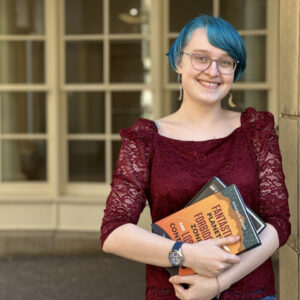The student with the top essay in Science Fiction in Film receives the King’s College History of Science and Technology Program Essay Prize in Science Fiction Film.
Essay prize winners
2024–2025
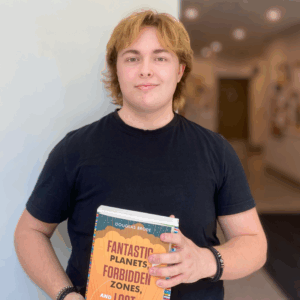
Bailey Haydon-Leger: Arts
“AI as Antagonist: Morals and Philosophy in 2001: A Space Odyssey”
2023–2024
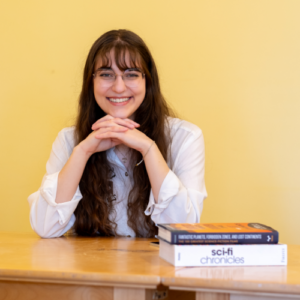 Claire Blackmer: Major in History with a minor in Contemporary Studies and a certificate in Heritage Studies
Claire Blackmer: Major in History with a minor in Contemporary Studies and a certificate in Heritage Studies
“How can we know what we are?’ Boundaries of Difference in Blade Runner (1982)”
2022–2023
Eleanor Friddell: Major in Mathematics and Classics with a Minor in HOST
“A new religion for a new millennium: the spirituality of science in Contact”
2021–2022
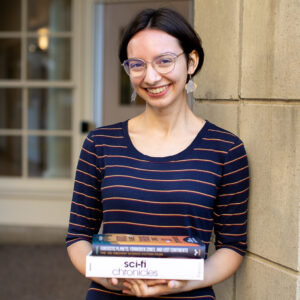 Emma Martel: Combined Honours in Early Modern Studies and Religious Studies
Emma Martel: Combined Honours in Early Modern Studies and Religious Studies
“Outsourcing Morality: 1960s Science Fiction and Machine Warfare as a Cold War Concern”
2020–2021
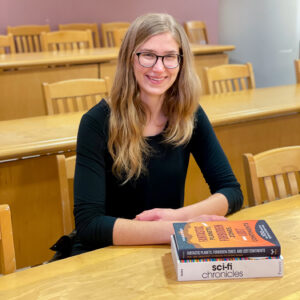 Emma Brouwer: Mechanical Engineering
Emma Brouwer: Mechanical Engineering
“Science fiction and the validity of the Turing Test”
2019–2020
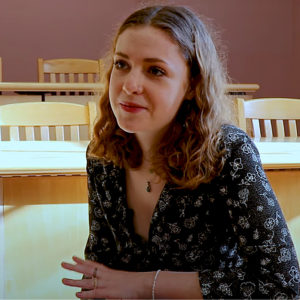 Sabina Willmott: English and Creative Writing
Sabina Willmott: English and Creative Writing
“Vital subjectivity and the metanarrative of linear time: the postmodern scientific process of Arrival and how it challenges Enlightenment values”
2018–2019
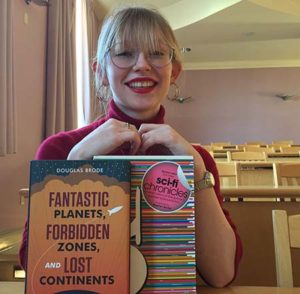
Elzbieta Wawer: Mechanical Engineering
“Portrayal of technology as Pandora’s Box in the film Gattaca”
2017–2018
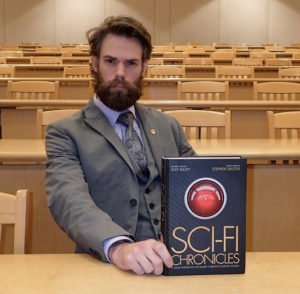
Alex Long: History
“Alien superpowers: a critical evaluation of the technological levels implied for the extraterrestrial civilizations in the films Contact (1997) and Interstellar (2014)”
2016–2017
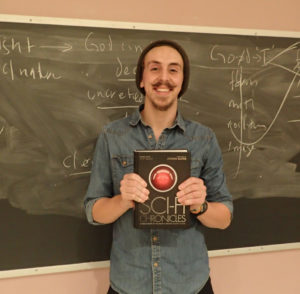
Alex Stover: Political Science and History
“All too human: understanding human transcendence in 2001: A Space Odyssey”
